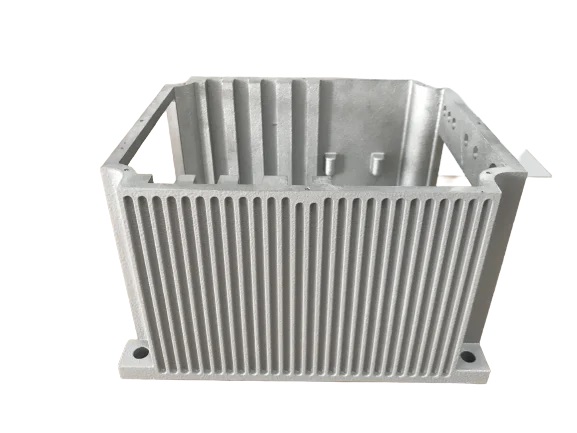Best Practices for Maintenance and Applications in the Aluminum Shop Sector: A Thorough Summary
Keeping tools in the light weight aluminum factory field is important for operational success. Routine evaluations and anticipating maintenance can considerably lower downtime and improve security. Advanced innovations, such as IoT and data analytics, play an essential role in this procedure. Nevertheless, understanding the full scope of best practices requires a more detailed assessment of specific approaches and their effects on efficiency. What are the important components that add to a reliable maintenance framework?
Significance of Routine Maintenance in Light Weight Aluminum Foundries
Routine upkeep plays a vital duty in the efficient procedure of light weight aluminum factories. By systematically checking and servicing equipment, foundries guarantee peak efficiency and longevity of machinery. Routine maintenance activities, such as lubrication, cleansing, and element replacement, assistance prevent unforeseen failures that can bring about costly downtime.
Moreover, regular checks boost office safety by determining prospective hazards before they rise into significant problems. Devices that is properly maintained runs much more successfully, leading to improved product high quality and minimized waste. In addition, adherence to an organized maintenance schedule can support compliance with industry regulations, consequently promoting a credibility for integrity and high quality within the market.
Carrying Out Predictive Maintenance Techniques
Anticipating maintenance methods take the principles of regular maintenance a step better by leveraging data analytics and progressed tracking technologies. In light weight aluminum shops, these strategies allow drivers to prepare for equipment failings before they take place, consequently lowering unintended downtimes and enhancing operational efficiency. By making use of sensing units and IoT tools, real-time data can be accumulated on device performance, enabling the identification of prospective problems via predictive analytics.
Optimizing Melting and Putting Processes
Reliable melting and pouring procedures are vital for optimizing productivity and ensuring the quality of aluminum spreadings. To improve these procedures, factories ought to focus on accurate temperature control during melting, as this directly affects the metallurgical residential properties of the alloy. Utilizing innovative melting innovations, such as induction and resistance melting, can boost energy effectiveness and decrease cycle times.
Executing automated pouring systems decreases human error and keeps uniformity in the putting procedure. Correct mold preparation, consisting of ample preheating, is necessary to prevent thermal shock and enhance mold and mildew longevity.

Enhancing Security Protocols in Foundry Procedures
Prioritizing security in light you can try this out weight aluminum shop procedures is important for safeguarding employees and ensuring an effective atmosphere. Effective security methods include regular training sessions that highlight the value of personal safety equipment (PPE), such More Bonuses as helmets, handwear covers, and goggles. Furthermore, the establishment of clear emergency treatments is necessary in managing possible crashes.
Regular examinations of devices and machinery aid recognize threats before they escalate right into severe concerns. Carrying out a durable reporting system motivates workers to communicate safety issues without anxiety of repercussion. In addition, fostering a culture of security assurances that every worker comprehends their function in maintaining a secure workplace.
Furthermore, guaranteeing correct ventilation and tracking air high quality can mitigate exposure to damaging fumes and dirt. By strengthening these practices, aluminum foundries can greatly lower the danger of accidents and develop an environment where staff members feel valued and safe, inevitably boosting total functional efficiency.
Leveraging Technology for Improved Efficiency
Utilizing advanced innovation has come to be progressively crucial for light weight aluminum factories intending to enhance operational performance. Automation and robotics play a vital duty in improving production procedures, minimizing labor costs, and lessening human mistake. Applying real-time monitoring systems permits the continuous evaluation of devices performance, enabling positive upkeep and minimizing downtime.
The combination of data analytics offers useful understandings right into functional operations, promoting far better decision-making and resource allowance. Predictive analytics can determine potential failures prior to they take place, additional optimizing upkeep schedules.
Additionally, embracing sophisticated melting and spreading modern technologies improves energy performance and product yield, which are fundamental for sustainability in the sector. By accepting these technological developments, light weight aluminum shops can not just increase efficiency but likewise maintain an click here for more affordable edge in an increasingly demanding market (Casting Foundry). Inevitably, leveraging technology is crucial in driving advancement and boosting overall operational efficiency within the industry

Regularly Asked Concerns
What Prevail Indications of Equipment Put On in Light Weight Aluminum Foundries?
Usual indicators of devices wear in aluminum shops include unusual sounds, reduced effectiveness, increased vibration, overheating components, leakages, and noticeable rust. These signs often signal the requirement for upkeep or possible replacement to prevent pricey downtime.
Just How Can I Train Staff for Effective Maintenance Practices?
To educate team for efficient upkeep methods, one can apply hands-on workshops, create detailed guidebooks, encourage mentorship programs, and conduct normal evaluations to assess abilities and knowledge, guaranteeing all workers understand upkeep methods thoroughly.
What Are the Ecological Rules for Aluminum Foundries?
Light weight aluminum shops go through various ecological regulations, including discharges control, waste management, and source preservation. Conformity guarantees marginal environmental impact, promoting sustainability while adhering to regional, national, and worldwide environmental requirements and guidelines.
Exactly How Do Shops Take Care Of Waste and Recycling of Light weight aluminum?
Factories manage waste and recycling by carrying out systems for collecting scrap aluminum, making use of advanced separation technologies, and teaming up with recycling centers to ensure effective healing processes, consequently minimizing environmental impact and promoting sustainability within the sector.
What Are the Costs Related To Applying Advanced Technologies?
Implementing sophisticated innovations in factories sustains considerable expenses, including first financial investment, training, and upkeep expenses. The long-lasting advantages, such as increased performance and lowered waste, typically warrant these expenses, leading to boosted earnings. (Casting Foundry)
